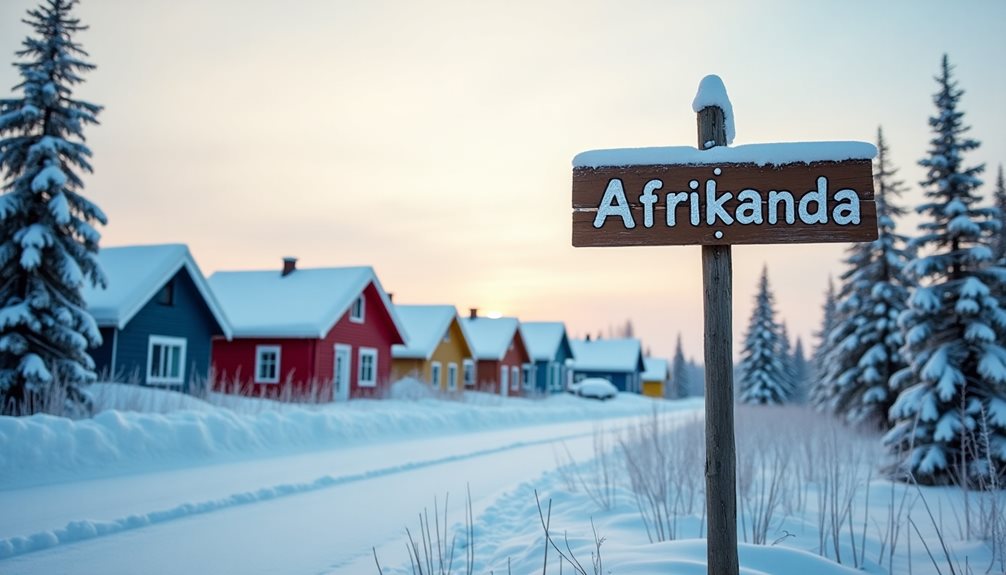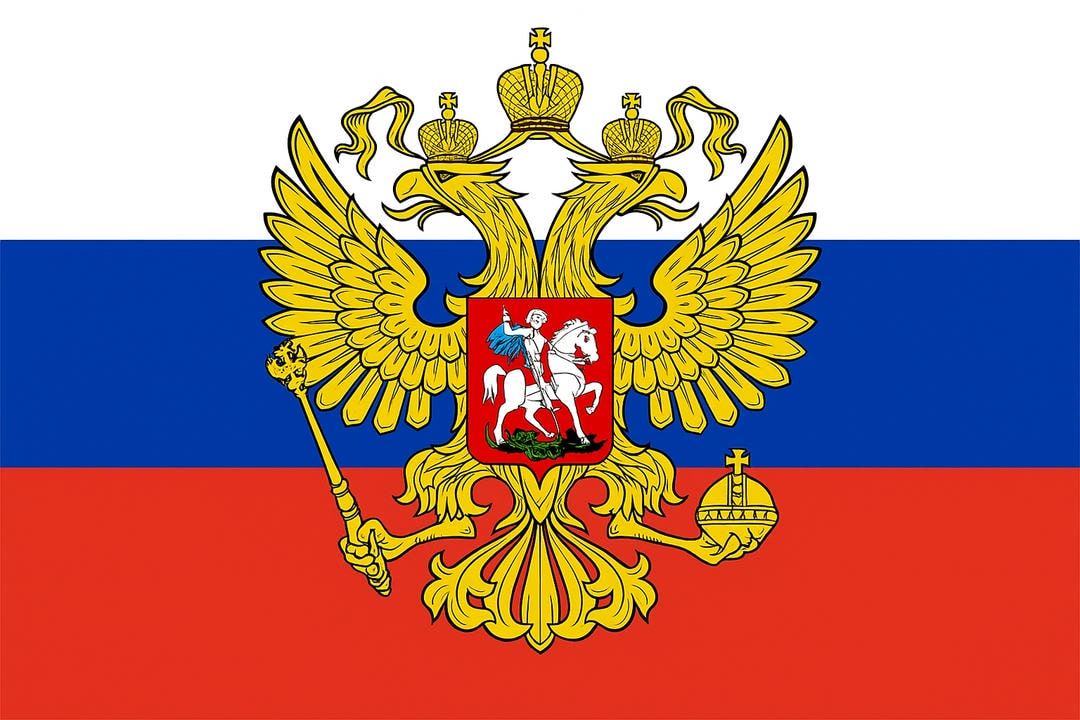Russia’s vast expanse is dotted with place names that defy expectations and invite curiosity. These names often reflect deep historical roots, cultural quirks, or natural phenomena unique to their regions. From the unexpected Antibes far from the French Riviera to the enigmatic Konets Sveta, each location carries a story waiting to be uncovered. Exploring these unusual names offers a glimpse into the diverse narratives that shape Russia’s identity.
What makes these names even more interesting is how they reveal the wide range of Russia’s geography and history—stretching from the frozen tundras of Siberia to the dense forests of European Russia. Many names come from indigenous languages, ancient legends, or stories from the Soviet era, making each destination a unique cultural experience. For travelers looking for something beyond the usual tourist spots, these places provide a chance to discover lesser-known parts of Russia’s past and present, with authentic encounters with local traditions and landscapes. Whether it’s a village named after a distant foreign city or a town whose name literally means “end of the world,” these geographic oddities spark curiosity and inspire adventure. For anyone planning a trip to Russia, exploring beyond Moscow and St. Petersburg to find these hidden gems can turn an ordinary visit into an unforgettable journey through history, language, and nature.
Antibes: Not the French City

When you hear “Antibes,” your mind may instantly travel to the glamorous French Riviera city. However, nestled deep in Russia’s Kemerovo Region lies a completely different Antibes (Антибес), a small locality whose story is steeped in Siberian history and indigenous culture rather than European luxury.
Origins and Name
Unlike its French namesake, this Antibes draws its name from the ancient Anti tribe, indigenous to North-Eastern Siberia. The name itself comes from a nearby river, symbolizing a strong connection to the land and its first inhabitants. The Anti were known for their resilience and intimate relationship with the vast Siberian wilderness, a spirit that still permeates the area today.
The Russian spelling Антибес reflects the locality’s integration into Russian geography while preserving its indigenous roots. This blending of cultures is a reminder of Siberia’s rich, diverse historical fabric.
Nearby Localities and Cultural Echoes
Close to Antibes are the villages Bolshoy Antibes (Большой Антибес) and Maly Antibes (Малый Антибес), meaning “Big Antibes” and “Small Antibes,” respectively. These neighboring settlements share the same cultural heritage and provide visitors with a fascinating glimpse into traditional Siberian village life, untouched by modern tourist trails.
Why Visit?
- Untouched Nature: The Kemerovo Region offers vast expanses of pristine forests, rivers, and mountains. Hiking, fishing, and wildlife watching here allow travelers to experience Siberia’s wilderness in its purest form.
- Cultural Heritage: Visitors can learn about the ancient Anti tribe through local museums, folklore performances, and community events celebrating indigenous traditions.
- Authentic Rural Life: Unlike the bustling cities of Russia or the tourist-heavy spots of Europe, Antibes offers quiet, authentic rural experiences. Visitors can stay in traditional wooden homes, savor homemade Siberian cuisine, and engage with locals proud of their unique heritage.
Fascinating Facts
- The Anti tribe is one of the lesser-known indigenous groups of Siberia, with customs and stories passed down over centuries.
- The nearby river, from which Antibes gets its name, is a lifeline for local communities and supports rich biodiversity.
- The area’s isolation has helped preserve languages, crafts, and rituals that are vanishing elsewhere in Russia.
Invitation to Explore
Antibes (Антибес) is more than just a name—it’s a gateway to discovering a side of Russia many never imagine. It challenges visitors to look beyond famous cities and landscapes, offering instead an intimate connection with Siberia’s wild heart and ancestral souls.
For travelers seeking stories off the beaten path, untouched nature, and profound cultural roots, Antibes is a destination that promises a journey unlike any other.
The Tale Behind Priyatnoe Svidanie
Tucked away along a quiet road, the village of Priyatnoe Svidanie (Приятное Свидание) carries a name that translates simply to “Pleasant Date.” This evocative name traces back to a humble roadside tavern that once served as a resting spot for officers during the Crimean War, offering a glimpse into a past filled with moments of kindness and connection.
Origins of the Name
The tavern was known for its welcoming sign, which read, “До приятного свидания!” (Do priyatnogo svidaniya!)—a warm and friendly farewell meaning “See you soon.” This phrase, inviting travelers back with open arms, left such an impression that it eventually became the name of the village itself.
The name Priyatnoe Svidanie captures both hospitality and a subtle hint of romance, evoking images of travelers sharing stories and laughter in a cozy setting before continuing their journeys.
Legends and Local Lore
While some local tales suggest a connection to Empress Catherine II and Prince Grigory Potemkin—figures famous in Russian history—there is no documented evidence to confirm this. Nevertheless, these stories add an air of mystery and allure to the village, inviting visitors to imagine the historic moments that may have unfolded there.
What Makes Priyatnoe Svidanie Special?
- Historic Atmosphere: Visitors can feel the echoes of the past in the village’s rustic charm and peaceful surroundings, where every corner seems to tell a story.
- Scenic Setting: Nestled in a picturesque landscape, the area offers gentle walks through nature, perfect for reflection and relaxation.
- Warm Hospitality: The spirit of “pleasant meetings” lives on in the friendly community, where guests are welcomed as old friends.
Interesting Facts
- The phrase “До приятного свидания!” remains a popular, heartfelt way in Russian to say goodbye, highlighting the cultural value placed on parting with warmth.
- The tavern that inspired the name served as an important social hub during a challenging period, symbolizing moments of camaraderie amid uncertainty.
- Local festivals occasionally celebrate this heritage with reenactments and gatherings that bring together history lovers and locals alike.
Why Visit?
Priyatnoe Svidanie offers more than just a name—it invites travelers to experience a story of kindness, shared moments, and timeless hospitality. For those seeking quiet charm combined with subtle historical intrigue, this village promises a memorable visit filled with warmth and gentle discovery.
Yerofey Pavlovich’s Unique Naming
On the expansive map of Russia, the settlement of Yerofey Pavlovich (Ерофей Павлович) stands out not just for its location but for its unique name. Unlike most Russian places named after surnames or geographical features, this settlement honors the famous explorer Yerofei Khabarov by combining his first name and patronymic—a distinctive tribute that speaks volumes about local respect and historical significance.
The Meaning Behind the Name
Yerofey Khabarov was a pioneering figure in Siberian exploration and played a key role in the development of the Trans-Siberian Railway region. Naming the settlement “Yerofey Pavlovich” (his first name and patronymic) rather than by surname alone is a rare practice in Russia, emphasizing a personal connection to the man himself rather than just his family name.
This naming choice reflects admiration for Khabarov’s adventurous spirit and contributions, highlighting the human side of exploration and settlement in Siberia.
What Makes Yerofey Pavlovich Unique?
- Historical Significance: The settlement commemorates Yerofei Khabarov’s legacy as a founder and trailblazer during a transformative era for Siberia.
- Distinct Naming Tradition: Using first name plus patronymic is uncommon in Russian toponyms, making this place stand out and deepening its cultural resonance.
- Symbol of Exploration: The name embodies values of freedom, discovery, and personal courage that defined Siberian expansion.
Interesting Facts
- Yerofei Khabarov was one of the earliest Russian explorers to map and establish settlements along the Amur River and surrounding regions.
- The settlement serves as a living monument to his legacy, attracting visitors fascinated by Siberia’s history of exploration.
- Yerofey Pavlovich is located along key transportation routes, linking remote Siberian areas with the rest of Russia.
Why Visit?
For travelers interested in history, adventure, and unique cultural stories, Yerofey Pavlovich offers a rare glimpse into Siberia’s past through the lens of a pioneering individual. The settlement’s name itself invites curiosity, promising an experience that connects visitors to the spirit of exploration and the vastness of Russia’s wild frontiers.
Exploring Yerofey Pavlovich means walking in the footsteps of those who shaped Siberia’s destiny—an unforgettable journey for those eager to discover stories beyond the well-trodden paths.
Dobrye Pchely and the Friendly Bees
Located in the Ryazan Region, about 221 kilometers southeast of Moscow, the charming village of Dobrye Pchely (Добрые Пчелы) translates to “Kind Bees.” This enchanting name reflects a deep-rooted history intertwined with nature, community, and tradition.
Origins of Dobrye Pchely
The village traces its beginnings back to the 16th century when monks from the St. John the Theologian Monastery established an apiary here. This early beekeeping endeavor quickly gained fame for producing exceptional honey, earning the area a reputation for “dobriy” — a Russian word meaning “good” or “kind.” The name Dobrye Pchely honors this legacy of sweetness and generosity.
Folklore and Natural Harmony
Local stories speak of unusually friendly bees that formed a special bond with the villagers. Unlike typical bees, these were said to be gentle and cooperative, symbolizing a harmonious relationship between humans and nature. This unique connection helped shape the village’s character and identity over centuries.
Why Visit Dobrye Pchely?
- Historic Apiary: The site of ancient beekeeping offers insight into traditional honey production methods still practiced today.
- Natural Beauty: Surrounded by lush forests and fields, Dobrye Pchely is perfect for nature lovers seeking tranquility.
- Cultural Experience: Visitors can explore local folklore, taste authentic honey products, and enjoy warm village hospitality.
Fascinating Facts
- The village’s name is a rare example where animal behavior directly influenced a place name.
- Honey from Dobrye Pchely has been celebrated for centuries for its purity and quality.
- The St. John the Theologian Monastery monks were pioneers in sustainable beekeeping practices in Russia.
Zima: Siberia’s Winter Refuge
Far from Moscow’s bustle, in Siberia, lies the settlement of Zima (Зима), a name that simply means “Winter.” This place holds a special place in Siberian history as a wintering ground created by free Cossacks in the 18th century.
The Role of Zima
In Siberia’s harsh climate, winters can be severe and unforgiving. Zima emerged as a vital seasonal refuge where Cossacks could find shelter, safety, and community during the cold months. Its strategic location allowed it to serve as a hub for survival and autonomy amid Siberia’s vast wilderness.
Symbolism and Legacy
Zima is more than just a winter stop—it represents resilience against nature’s toughest challenges. The settlement stands as a symbol of endurance, freedom, and the pioneering spirit that shaped Siberian life.
Why Visit Zima?
- Historical Insight: Learn about Cossack culture and their adaptation to Siberia’s climate.
- Winter Activities: Experience Siberian winter traditions, including festivals and outdoor sports.
- Cultural Heritage: Explore museums and monuments dedicated to Siberian settlers and their stories.
Interesting Facts
- Zima was one of several Cossack wintering sites crucial for survival in Siberia.
- The settlement’s name reflects both the natural environment and cultural identity tied to enduring winter hardships.
- Today, Zima blends modern life with respect for its historical roots.
Afrikanda’s Arctic Humor

Located well above the Arctic Circle, the village of Afrikanda (Африканда) surprises with a name that humorously contrasts its icy, harsh environment. While the surroundings are dominated by snow, frost, and biting cold, the name evokes images of the much warmer continent of Africa.
How Afrikanda Got Its Name
The story behind this unusual name comes from local engineers working in the area. Faced with relentless Arctic conditions, they began making light-hearted jokes and puns, comparing their frigid home to tropical Africa as a way to lift spirits. The playful irony stuck, and “Afrikanda” became the official name.
This clever naming reflects a spirit of resilience and humor, showing how people use wit to cope with extreme climates. Afrikanda is an example of how place names can carry cultural personality and humor, bridging geography with human experience.
Why Visit Afrikanda?
- Unique Arctic Experience: Explore life in one of the northernmost inhabited places on Earth.
- Cultural Insight: Discover how humor and creativity help communities thrive in tough environments.
- Stunning Nature: Witness breathtaking Arctic landscapes that contrast sharply with the village’s warm name.
Interesting Facts
- Afrikanda’s name is a rare case where a place’s title playfully contradicts its climate.
- The village has a history connected to railway construction and military installations.
- Locals celebrate their unique identity with festivals that embrace both Arctic traditions and lighthearted spirit.
Konets Sveta: The Edge of the World
Perched on Shikotan Island in the Kuril chain, about 10,000 kilometers east of Moscow, Konets Sveta (Конец Света) translates as “Edge of the World.” This evocative name perfectly captures the sense of remoteness and mystery surrounding this far-eastern outpost.
Significance of the Name
Konets Sveta marks one of Russia’s easternmost points, where land gives way to the vast Pacific Ocean. The name stirs imagination by suggesting a boundary between the familiar world and unexplored horizons.
Local legends add mythical layers to this “edge,” portraying it as a threshold to unknown realms. The name reflects the spirit of adventure and freedom associated with remote frontiers.
Why Visit Konets Sveta?
- Remote Beauty: Experience untouched landscapes where vast ocean meets rugged land.
- Cultural Mystique: Engage with local stories and legends that enrich the region’s identity.
- Adventure: Ideal for travelers drawn to isolated places full of natural wonder and enigmatic charm.
Fascinating Facts
- Konets Sveta is part of an island chain formed by volcanic activity, with dramatic cliffs and rich marine life.
- The name has inspired artists and writers fascinated by “the end of the world” theme.
- Visitors often feel a profound sense of connection to nature and history here, far from urban life.
Discovering Russia Through Its Unique Place Names: A Journey Beyond the Familiar
Russia’s geographic names reveal stories that stretch far beyond its well-known landmarks. From the indigenous roots of Antibes in Siberia to the humorous irony of Afrikanda in the Arctic, each name is a window into the country’s vast cultural mosaic and natural diversity. These places invite travelers to explore history, folklore, and landscapes that often remain hidden from typical tourist routes. Whether it’s the warmth of Dobrye Pchely’s “Kind Bees” or the mystique of Konets Sveta, the “Edge of the World,” venturing into these unique localities transforms a visit into an immersive experience filled with discovery and connection. For anyone curious about Russia’s depth and character, these geographic oddities offer unforgettable stories and authentic encounters that enrich the journey.




